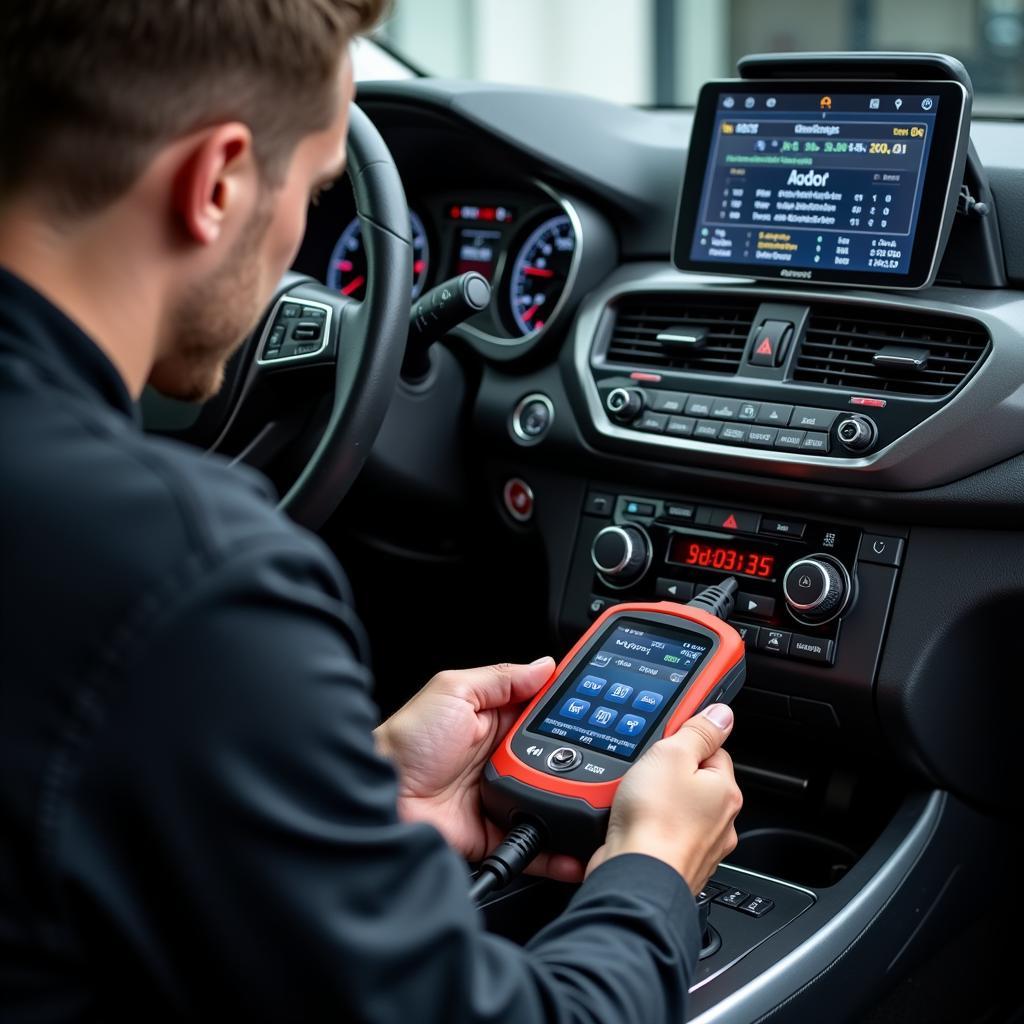Maintaining your car at 200,000 miles is crucial for its longevity and performance. Reaching this milestone is a testament to your vehicle’s durability, but it also signifies the need for more attentive Car Maintenance At 200k Miles. This guide will help you understand the essential maintenance tasks required to keep your car running smoothly even after hitting this high mileage mark.
Essential Maintenance for Your High-Mileage Vehicle
Hitting 200,000 miles is a significant achievement for any car. However, reaching this mileage means certain components are nearing the end of their lifespan. Proactive car maintenance at 200k miles can prevent costly repairs and keep your car on the road for longer.
Fluids: The Lifeblood of Your 200k Mile Car
Regular fluid changes are paramount. Don’t just stick to the standard oil change; pay attention to your transmission fluid, coolant, brake fluid, and power steering fluid. These fluids degrade over time and lose their effectiveness. At 200,000 miles, consider more frequent fluid changes than recommended for lower mileage vehicles.
- Oil Change: Use high-mileage oil specifically designed for older engines. This oil contains additives that help condition seals and prevent leaks.
- Transmission Fluid: A transmission flush or fluid change can prevent slippage and extend the life of your transmission.
- Coolant: Ensure your coolant is fresh and the system is free of leaks. A well-maintained cooling system prevents overheating, which can be detrimental to a high-mileage engine.
- Brake Fluid: Brake fluid absorbs moisture over time, reducing its effectiveness. Regular brake fluid flushes are crucial for maintaining optimal braking performance.
- Power Steering Fluid: Old power steering fluid can cause whining noises and difficulty steering.
Addressing Wear and Tear: Key Components to Inspect
At 200,000 miles, certain components experience significant wear and tear. Inspecting these components regularly and replacing them when necessary can prevent major breakdowns.
- Timing Belt: If your car has a timing belt, replace it according to the manufacturer’s recommendations. A broken timing belt can cause catastrophic engine damage.
- Water Pump: The water pump is often replaced along with the timing belt as a preventative measure.
- Suspension Components: Check for worn-out shocks, struts, and bushings. These components are essential for a comfortable and safe ride.
- Brakes: Inspect brake pads, rotors, and calipers. Worn brakes can significantly reduce stopping power.
- Exhaust System: Check for leaks or rust in the exhaust system. A faulty exhaust system can lead to decreased fuel efficiency and increased emissions.
Keeping it Running Smooth: Tune-Ups and Diagnostics
Regular tune-ups are vital for maintaining optimal performance. A tune-up typically includes replacing spark plugs, air filters, and fuel filters. These simple maintenance tasks can significantly improve fuel economy and engine performance. Also, consider a diagnostic check at a reputable repair shop. This can help identify potential issues before they become major problems.
 Performing a diagnostic check on a 200,000 mile car
Performing a diagnostic check on a 200,000 mile car
Car Maintenance at 200k Miles: Addressing Common Questions
What are the most common issues with cars at 200,000 miles? Common problems include worn suspension components, transmission issues, oil leaks, and electrical problems.
How often should I change my oil at 200,000 miles? Sticking to the manufacturer’s recommended oil change interval or even slightly shorter intervals is a good practice.
Is it worth maintaining a car with 200,000 miles? If the car is in good overall condition and you’ve maintained it well, it can be worth keeping.
What are some signs my car needs major repairs? Unusual noises, vibrations, fluid leaks, and warning lights are all signs your car may need major repairs.
Keeping Your 200,000 Mile Car on the Road
Car maintenance at 200k miles requires a more proactive approach. By following this guide, you can address potential issues before they become costly repairs and extend the life of your vehicle. Remember, regular maintenance is an investment in your car’s longevity and your peace of mind. If you need further assistance or have any questions, feel free to connect with the experts at AutoTipPro. Call us at +1 (641) 206-8880 or visit our office at 500 N St Mary’s St, San Antonio, TX 78205, United States.
FAQ:
- What is the most important maintenance for a 200k mile car? Regular fluid changes and addressing wear and tear are crucial.
- Can a car last 300,000 miles? With proper maintenance, it’s definitely possible.
- How can I increase the lifespan of my car? Regular maintenance, gentle driving habits, and addressing issues promptly can help extend your car’s life.
- What should I check before a long road trip in a high-mileage car? Ensure all fluids are topped off, tires are properly inflated, and brakes are in good condition.
- Is it expensive to maintain a 200k mile car? Maintenance costs can increase with mileage, but preventative maintenance is often less expensive than major repairs.
- How can I tell if my transmission is failing? Common signs of transmission problems include slipping gears, rough shifting, and unusual noises.
- Should I buy a used car with over 200,000 miles? It depends on the car’s history, condition, and your willingness to invest in potential repairs.





Leave a Reply